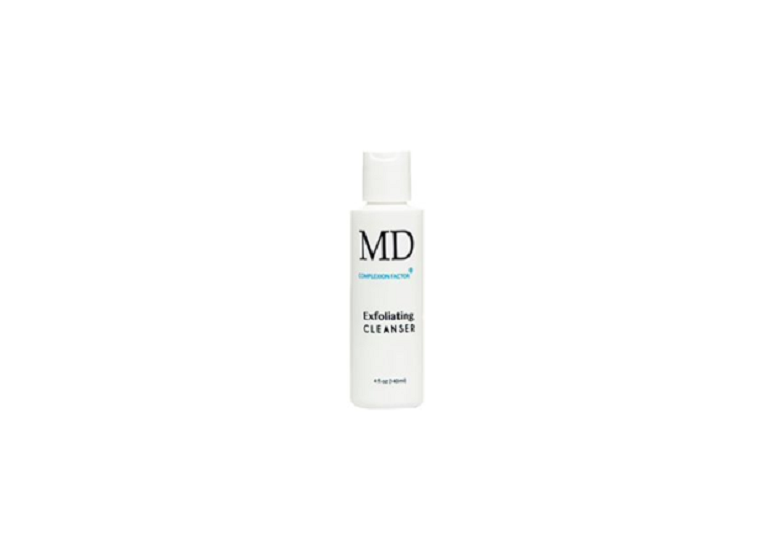Sleep may be the nearest approximation to a youthful fountain in your beauty routine. While you rest, your body repairs and recovers, which has several beneficial effects on your looks. The goal is to get enough sleep, approximately 7 to 9 hours of rest each night. If you receive less than 6 hours, it undoubtedly affects your appearance no matter how many best facial toner you use. You may feel better as young as a day if you begin having one to three additional hours of sleep. If you do this, people will begin to see that you are feeling stronger after about two to three weeks. People can think effectively and feel most excellent when they receive the appropriate rest each night. Even though most people would recognise how vital sleep is, more than 30% of individuals in the US sleep for less than seven hours each night. Specialists recommend prioritising and stressing the establishment of appropriate sleep habits to maximise the advantages of rest. One of the most crucial sleep habits is adhering to one’s sleep pattern. Discover the importance and significance of a sleep schedule, the ideal sleep schedule for different age ranges, and how to maintain a regular bedtime habit. Establishing a regular sleeping routine along with a good skin care routine which includes using a good exfoliate toner enables you to get the ideal amount of sleep for your specific requirements. Even on weekends and public holidays, getting up and heading to bed during the exact times each and every day can assist you in falling asleep more rapidly at night. Furthermore, it can aid in a prompt wake-up and a morning of increased vigor. There are many advantages to organising your sleep schedule to guarantee you get the necessary amount of sleep. Getting sufficient sleep aids in retaining a healthy weight and reducing illnesses. Furthermore, getting enough sleep decreases your chance of developing long-term illnesses like diabetes and heart disease.
Benefits Of Getting The Right Amount Of Sleep
1. Less wrinkling
While you sleep, your skin provides unique and generates new collagen, minimising sagging. That is a step in the fixing operation. Skin with more collagen is chubbier, fluffier and less susceptible to creases. Five hours less of sleep per night may cause twice as many fine lines and wrinkles as seven hours. Additionally, it dries out the skin, which can emphasise and exaggerate wrinkles.
2. A Glistening Face
While you sleep, your body controls blood flow to the skin, culminating in a healthy glow when you wake up. If you don’t sleep enough, your skin may look dull, soulless, or grey. The skin around your face absorbs less blood when you’re sleep deprived. Your skin turns colourless, and your red cheeks stop appearing.
3. Less Swollen And Brighter Eyes
You’ve personally witnessed under-eye bags or dark spots after a sleepless and disturbed night. One of the earliest things we perceive when we are not getting enough sleep is puffy eyes. You’ll have much less under-eye heaviness if you get adequate sleep and relaxation. Keep yourselves moisturised and raise your head at night with an appropriate pillow. That could also help to decrease oedema. Getting adequate sleep also might decrease dark circles. Since the skin under the eyes is so delicate, blood circulation is poor, as happens when you are deprived of sleep. It can accumulate there and suddenly become noticeable. Genes and increased age can also bring on the under-eye darkening.
4. Fuller, Healthier hair
Sleep deprivation can impact every aspect of regrowing hair, particularly development. Blood flow contains nutrients, minerals, and enzymes to hair follicles. Sleep deprivation inhibits blood flow, which leads our hair to absorb less nourishment, become thinner, and fight to grow. Getting insufficient sleep might result in stress and cause anxiety. The adrenal hormones rise due to stress, which can contribute to hair loss.
5. A More Positive, Healthy Appearance
Insufficient sleep can cause your mouth’s corners to drop, making you seem more disappointed and sadder than you would have after a good night’s sleep. Your facial features vary gradually and persistently when you’re tired. We generally frown and sneer more. These phrases may be the reason why individuals comment things about your appearance. Other classic symptoms you’re tired of comprise pale skin, drooping eyelids, dark circles under your eyes, and red, swollen eyes. Additionally, it is considered that individuals who do not get enough sleep are less nutritious compared to those who do.
6. Products Function Better
While you sleep, your skin can be focused on recuperating since it isn’t helping protect against the light and free agents. Furthermore, blood circulation is more constant, allowing your skin to profit from the flesh-repairing ingredients and substances in your skincare products. Sleeping allows the skin to lose more moisture than it would during the day. To help your face stay hydrated overnight, it is advised to use a creamier moisturiser before bed and consume much water throughout the day.
Conclusion
Average sleep time has gradually decreased due to a busy lifestyle and demanding work schedules and schedules. Full-time professionals are significantly affected by this development; they frequently mourn their health without even recognising that they are captives of sleeplessness. It is not something to be pleased of to sleep for less than 6 hours a day and still have sufficient stamina to complete everyday tasks. Similar to how essential it is for life to have a supply of food, water, and oxygen, sleep also has a critical role. Lack of sleep is connected to cardiac problems, being overweight, and even premature grave. A healthy lifestyle must also include adequate and sufficient sleep, which can benefit the heart, kidneys, digestion, and weight control. Sleep deprivation can also affect your cognitive performance, temperament, susceptibility to pain, and disease resistance. Recent research has shown that obtaining either too much or too little sleep increases the chance that you’ll die young. Lack of sleep decreases immunity levels and decreases the rate of the body’s natural barriers against microorganisms, increasing the risk of developing a wide range of illnesses. Regular sleep disturbances have indeed been linked to both male and female infertility. It would appear that stopping the body from transitioning into a sleep state hinders the production of hormonal levels, which can result in problems during childbirth. Make the required lifestyle changes if you sleep less than 8 hours every day before it’s too late.

